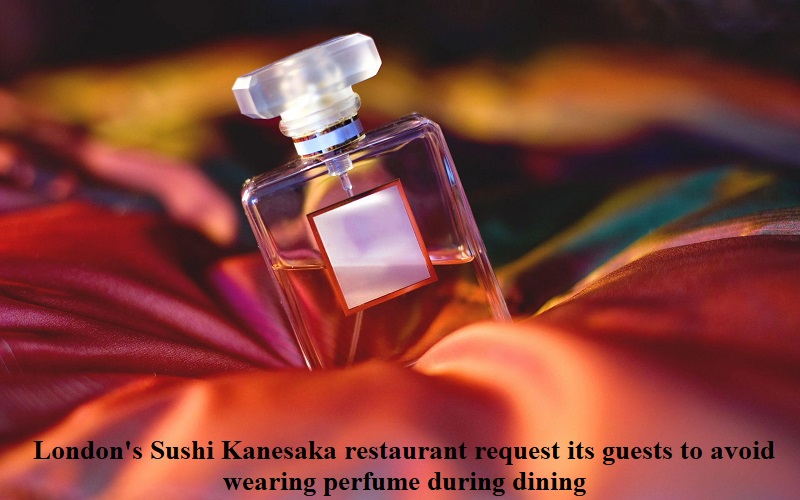
London’s Sushi Kanesaka restaurant has made a distinctive request to its patrons: to refrain from wearing perfume while dining. The restaurant believes that strong fragrances can disrupt the sensory enjoyment of the food and the delicate aroma of vinegar. This raises the question of whether other restaurants should adopt a similar approach. Could wearing perfume on a dinner date, while enhancing personal scent, potentially have a negative impact on the taste of food and drink?
The significance of smell cannot be underestimated. Professor Barry Smith, an expert in philosophy and taste perception, explains that smell plays a crucial role in the overall tasting experience. While the tongue primarily detects basic flavors like sweetness, sourness, and saltiness, the nose contributes to the perception of other flavors, as reported by The Guardian. However, Smith points out that environmental odors may not necessarily interfere with the flavors experienced in the mouth, as simultaneous breathing in and out is not possible.
Research and real-life experiences support the idea that ambient scents can greatly influence the dining experience. Professor Charles Spence, a psychologist, highlights that ambient scents can impact both the taste of the food and the mood of the diners. However, inappropriate smells in a specific context can create an unpleasant sensory dissonance. For instance, encountering the smell of rotting seaweed while enjoying a meal could be off-putting. Professor Spence suggests considering gourmet perfumes like black pepper or strawberry, which may be less conflicting than synthetic or soapy scents.
Chefs have actively explored the use of ambient scents to enhance the dining experience. Introducing specific scents can help create a desired atmosphere or evoke nostalgia. Nevertheless, careful consideration must be given to ensure that the scents complement the culinary setting and do not clash with the intended sensory experience.
When it comes to perfume, an experiment was conducted where participants wore face masks sprayed with either Lynx or Impulse body sprays for a short period before engaging in a smell test. The results showed that after wearing these scented masks, the participants exhibited reduced ability to detect other fragrances. This finding suggests that wearing strong perfumes or scented products can potentially impact an individual’s sense of smell and diminish their sensitivity to other smells. Therefore, strong perfumes may overpower delicate scents, such as the freshness of sushi fish, while milder fragrances could be more suitable, particularly in restaurants serving bold flavors.
Implementing a no-perfume policy in restaurants carries potential drawbacks. Wearing perfume can enhance personal attractiveness and boost confidence. Completely prohibiting fragrances may cause anxiety among diners. Experts suggest that allowing a modest amount of perfume could be considered reasonable to strike a balance between sensory experiences and personal preferences.

Post Your Comments